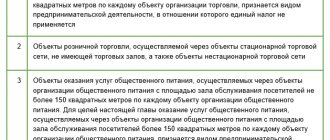Tax Code and CCP
Currently, control over the use of cash register equipment is carried out by tax authorities. Registration, re-registration and deregistration of cash registers, inspection of cash register equipment, prosecution for non-use or violation of the procedure for use - these are just some of the responsibilities of tax officials in the area of application of cash registers.
To make the work of tax authorities easier and to systematize legal norms regarding the procedure for using cash registers, officials developed a bill on amendments to the Tax Code of the Russian Federation (ID 02/04/07-20/00106012). Its authors plan to transfer the provisions on cash registers from Law No. 54-FZ of May 22, 2003 to the Tax Code of the Russian Federation. There will also be some innovations: new fines and inspections. But first things first.
Who should use CCP from July 1, 2021
In connection with new amendments to the federal law, the procedure for settlement and cash services will change for the following categories of entrepreneurs:
- Individual entrepreneurs and LLCs on imputed, simplified and OSN;
- individual entrepreneurs on PSN, whose activities are related to the provision of services and have employees;
- legal entities on PSN and UTII selling goods from third-party manufacturers. Not attracting hired workers;
- legal entities operating under UTII that do not employ employees;
- Individual entrepreneurs working under UTII or OPS in the catering sector, who do not employ hired employees;
- owners of vending machines with zero staff;
- carriers selling travel tickets in the transport cabin.
All of the listed categories of businessmen will have to acquire a new type of cash register. The procedure and timing for installing equipment can be clarified in Article 7 of the federal law.
Cancellation of 54-FZ and changes to CCP
Among the most significant changes that await CCP users in 2021 (if the bill is adopted) are the following:
- The emergence of a new type of tax audits - operational ones.
In addition to on-site and desk audits, tax officials will now be able to conduct operational audits. Their goal: to check the completeness of recording calculations and accounting for cash register receipts. These checks existed before, but were not officially recognized in the Tax Code of the Russian Federation and were carried out on the basis of the Administrative Regulations, approved. By Order of the Ministry of Finance of the Russian Federation dated October 17, 2011 No. 132n.
This document did not clearly define the actions of inspectors, which made inspections less effective, according to officials. Now provisions on operational control will be included in the Tax Code of the Russian Federation and tax authorities will receive a wide range of powers to check cash register users. Among them: test purchase, surveillance and monitoring. You can find out more about operational tax audits in this article.
- Possibility of generating a receipt through your personal cash register account.
In addition to the cash receipt generated using the cash register, organizations and individual entrepreneurs will be able to generate electronic (settlement) checks using a new service located in the personal account of the cash register on the Federal Tax Service website. The situations in which KKM users will be able to generate settlement checks on the Federal Tax Service website are not given in the bill, but it is indicated that they will be approved by the Federal Tax Service.
- Introduction of new terms and definitions.
The basic concepts transferred from Law No. 54-FZ will also undergo some changes. Most of them will be retained, but some will be excluded from circulation. Thus, in the new edition of the Tax Code of the Russian Federation, the term “use of cash register equipment” will be replaced by the term “fixation of settlements.” It means the actions of organizations and individual entrepreneurs to generate fiscal documents using cash registers and through a personal account on the Federal Tax Service website. There will also be definitions for the concepts of “payment check”, “imaginary and feigned payment”, “operational control”. The terms “BSO”, “system for BSO”, “cash register user” will disappear from circulation.
- Transfer of sanctions for violations of the procedure for applying CCP from the Code of Administrative Offenses of the Russian Federation to the Tax Code of the Russian Federation.
Who is exempt from CCT until 07/01/2021
For a number of taxpayers, federal legislation makes it possible to delay the transition to the new cash settlement system. These include individual entrepreneurs who meet the following criteria:
- do not have employees;
- sell goods of their own production;
- sell works or services.
At the same time, entities selling goods of their own production. Must work under UTII or OPS. Entrepreneurs who provide services to the population or perform work on a paid basis can work under any of the existing taxation systems.
Fines for non-use of cash registers in 2021 and 2021: comparative table
The transfer of responsibility of the OFD and experts from Article 14.5 (Part 7-15) of the Code of Administrative Offenses of the Russian Federation to the new Article 15.8.1 is provided for by a separate bill (ID 02/04/07-20/00106036), currently being considered in the State Duma of the Russian Federation. Let's compare the current sanctions with those planned to be introduced in 2021.
| Liability under the Code of Administrative Offenses of the Russian Federation (until 01/01/2021) | Liability under the Tax Code of the Russian Federation (after 01/01/2021) | What will change |
| Non-use of cash registers in cases established by law (Part 2 of Article 14.5 of the Code of Administrative Offenses of the Russian Federation). Fine:
| Carrying out calculations without fixing them (Part 1 of Article 12915 of the Tax Code of the Russian Federation). Fine:
|
|
The use of a cash register that does not meet the established requirements, or the use of a cash register in violation of the procedure for its registration, re-registration and conditions of use (Part 4 of Article 14.5 of the Code of Administrative Offenses of the Russian Federation).
| Fixing a calculation in violation of established requirements (clause 3 of Article 12915 of the Tax Code of the Russian Federation). Warning or fine:
| |
| Failure by an organization or individual entrepreneur to send a cash register receipt or BSO in electronic form or on paper to the buyer (client) when using cash registers (part 6 of article 14.5 of the Code of Administrative Offenses of the Russian Federation). Warning or fine:
| Failure by an organization or individual entrepreneur to register a payment to a buyer (client, customer) of a cash or settlement receipt in electronic form or on paper (Clause 4 of Article 12915 of the Tax Code of the Russian Federation). Warning or fine:
|
|
| Failure by an organization or individual entrepreneur to provide information or documents at the request of tax authorities or the provision of such information and documents in violation of deadlines (Part 5 of Article 14.5 of the Code of Administrative Offenses of the Russian Federation). Warning or fine:
| Failure by an organization or individual entrepreneur to provide information and documents upon requests from the tax authority sent as part of operational control or submission in violation of deadlines (clause 4 of Article 126 of the Tax Code of the Russian Federation). Warning or fine:
| |
| Not provided | Fixation of an imaginary or feigned calculation (Clause 2 of Article 12915 of the Tax Code of the Russian Federation). Fine:
| Previously, neither the Code of Administrative Offenses of the Russian Federation nor Law No. 54-FZ of May 22, 2003 held liability for such an offense. |
| Failure to indicate in a fiscal document the name of a product subject to mandatory labeling or indication of the name in a distorted form, clause 5 of Art. 12915 Tax Code of the Russian Federation). Fine:
| ||
| Failure to submit on time to the tax authorities all fiscal data that is subject to transfer (Clause 6 of Article 12915 of the Tax Code of the Russian Federation). Fine:
|
Let us consider separately new types of punishments for individual entrepreneurs and organizations working with cash register systems.
Who is exempt from CCT indefinitely?
The text of 290-FZ also contains a list of entities for which the installation of a new type of cash register is not required at all. These include:
- credit organizations;
- Individual entrepreneurs working under the patent taxation system (with rare exceptions);
- entrepreneurs operating under the “Professional Income Tax” regime;
- LLCs and individual entrepreneurs whose payments are made in remote or hard-to-reach areas;
- pharmacies for AF and FAP in rural areas;
- persons providing services for ritual rites and ceremonies, sellers of religious literature and religious objects;
- Homeowners' associations, educational and physical culture and sports organizations, cultural centers, etc. (when charging for your services in cash);
- Individual entrepreneurs selling theater tickets and subscriptions.
Also, from July 1, 2021, the previous cash settlement procedure will be maintained for entrepreneurs selling at markets, fairs or for delivery, selling newspapers and magazines, drinking water/kvass/ice cream/milk/live fish/seasonal vegetables/shoe covers. In the service sector, shoemakers and haberdashers, porters and wood sawers, as well as persons caring for disabled people are exempt from installing online cash registers with acquiring. New cash registers and recycling collection points are not required and will not be required (with the exception of scrap metal and precious metals collection points).
Important ! There are exceptions for some of the listed categories. You can read them in the text of Federal Law No. 290.
Responsibility for non-use of CCT: new types of punishments
The list of types of liability for violations related to the use of cash register systems will expand significantly in 2021. The following sanctions will be added to the existing sanctions in the form of a fine and a warning:
Order to eliminate identified violations
If tax authorities identify a violation of the obligation to record payments, they have the right to send the violator an order to eliminate the violation. If an individual entrepreneur or organization does not eliminate the violation within the prescribed period, he will be held liable for taxation. An order may also be sent to the organizer of distance trading on the Internet if it is carried out in violation of the requirements for recording payments or using cash registers (for example, failure to issue a check or failure to use a cash register in general).
Prohibition of access to information systems and (or) computer programs
From 2021, tax authorities will be able to block:
- website domain name;
- network address;
- index of website pages on the Internet;
- computer programs, including mobile applications;
- pages of a website on a social network, blog (microblog) and other online communities on the Internet;
- the offender's pages in messengers.
Such sanctions will be applied only to persistent violators who simultaneously meet 3 conditions:
- The violation was committed again.
An organization or individual entrepreneur was held accountable within a year for violating the obligation to record payments.
- Failure to issue a check (other violations regarding the recording of settlements) on a large scale.
A large amount is considered to be the amount at which the amount of settlements carried out without fixation amounted to a total of 1,000,000 rubles. and more.
- More than 48 hours have passed since the check was not issued.
Only if the specified conditions are met, tax authorities will be able to prohibit access to the Internet resources of an individual entrepreneur or organization. Only the Federal Tax Service has the right to make a decision on a ban based on a report from the head (deputy) of the tax authority. The heads of inspections cannot make such a decision without the knowledge of the Federal Tax Service.
The duration of blocking can reach 90 days and this period begins to be calculated from the date of suspension of access.
Suspension of the activities of an organization and individual entrepreneur
The tax authority can impose this punishment if it considers that the organization and individual entrepreneur will not comply with the decision to prosecute and other measures of responsibility will not affect it. This punishment is not new; it will be transferred from the Code of Administrative Offenses of the Russian Federation.
Suspension of activities is a temporary cessation of the activities of an organization or individual entrepreneur in the form of imposing a ban on the sale of goods (work, services, property rights) and other activities of the organization or individual entrepreneur for making payments. Also, as in the case of blocking Internet resources, the period of suspension of activities can reach 90 days and only the Federal Tax Service can make such a decision.
The conditions for suspending activities are the same as for denying access: repeated violations within a year, failure to issue a large check and violation of the payment recording period for more than 48 hours.
Federal Law-54 on the use of cash register equipment
FZ-54 is a law on the application of CCP, consisting of ten articles. The regulatory act gained force back in 2003, and since 2021, serious amendments have been adopted regarding the use of online cash registers for payments in the Russian Federation (Federal Law No. 190 of July 3, 2021). Their main difference from the old-style devices is the installation of a fiscal drive (FN) instead of an ECLZ.
The cash register is connected to the Internet, which allows you to transfer data about transactions performed online to the Federal Tax Service through the OFD. The buyer is given a paper check, and if they provide a phone number or e-mail, an electronic equivalent is additionally sent to the specified contact information.
From 2021 until today, the Federal Law No. 54 has undergone numerous adjustments. In the article we will look at those that are valid in the period 2019–2020.
- for marking
Cash register for labeling Atol Sigma 7
3 reviews
11 400 ₽
11400
https://online-kassa.ru/kupit/kassa-dlya-markirovki-atol-sigma-7/
OrderMore detailsIn stock
- Cash register for marking PTC MSPos-K
2 reviews
13 900 ₽
13900
https://online-kassa.ru/kupit/kassa-dlya-markirovki-ptk-mspos-k/
OrderMore detailsIn stock
- Cash register for labeling Evotor 7.3
1 review
20 700 ₽
20700
https://online-kassa.ru/kupit/kassa-dlya-markirovki-evotor-7-3/
OrderMore detailsIn stock
Let's sum it up
- If the bill to repeal Law No. 54-FZ of May 22, 2003 is adopted, all its provisions will be transferred to the Tax Code of the Russian Federation, and the law itself will cease to be in effect.
- It is planned to introduce a new type of inspections - operational ones. Their goal is to check the completeness of recording calculations and accounting for cash register receipts.
- Fines for violation of work with cash register systems will “move” from the Code of Administrative Offenses of the Russian Federation to the Tax Code of the Russian Federation and will be supplemented with new types.
- Blocking of websites, online stores and messenger profiles will be added to the existing sanctions.
If you find an error, please select a piece of text and press Ctrl+Enter.
How does the online cash register work?
The new checkout, or online checkout, is very different from what merchants are used to. Firstly, the usual cash register (EKLZ - secure electronic control tape) is replaced with a fiscal drive. This is a small device whose memory stores information about all sales made at the checkout. The fiscal drive encrypts the data and sends it to the Federal Tax Service.
The declared cost of the fiscal drive is 8,000 rubles, but at the moment, due to a shortage, the price reaches 15,000 rubles. The device has a service life of 13 months. They promise that drives with a longer shelf life of up to 36 months will be available on the market, but at the time of writing this article, such devices have not yet appeared on the market.
The owner of the cash register has the right to independently replace the fiscal drive after the period of use has expired. But, apparently, suppliers of cash register equipment will require that this be performed by certified specialists - for example, as part of a cash register service agreement. Otherwise, this may result in the cash register being removed from warranty.
The cash register must also be equipped with an interface for connecting to the Internet - wired or wireless (WiFi, mobile Internet).
Some cash registers can be upgraded to new standards. Some don't. This can only be clarified from the manufacturer.
The cost of new cash registers ranges from 18,000 to 70,000 rubles, depending on the characteristics and capabilities. When purchasing, you need to pay attention to whether the declared price includes a fiscal drive.







